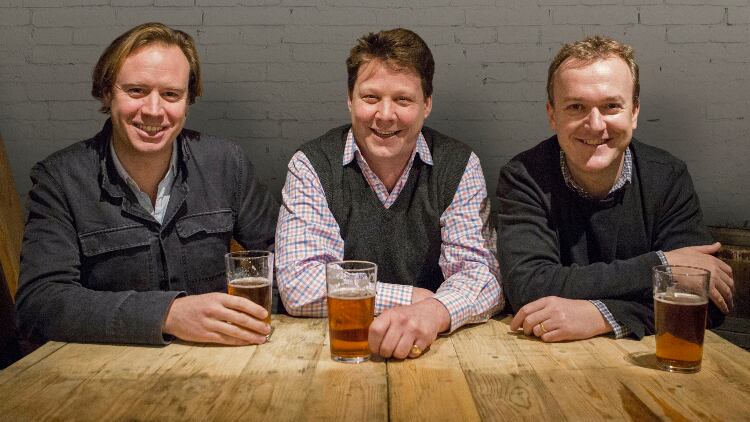Mark Reynolds, one of the trio behind the Three Cheers Pub Co says: “We’re not into world domination. We’re just looking for pubs to take on that need a little love.”
And while the company may not be looking for global success, it has certainly carved out a nice little niche for itself across south London, building an impressive and enviable estate of cracking operations.
Set up by three old school friends in 2003, Three Cheers now has nine sites between itself and the partnership deal agreed with Ei Group under the managed expert model...more on that later. Reynolds and fellow director Tom Peake met at the age of nine in school, while fellow director Nick Fox met Peake while at university, but it wasn’t until their mid-20s that the three decided to go into business together.
Initially, they set up a restaurant called Cinnamon Cay. “We learned a lot there,” says Peake. But they didn’t see restaurants as the future. “The gastropub movement was quite evolved,” says Reynolds, “but was continuing to gather momentum. We thought, ‘why not do that?’”
An opportunity came up to acquire an operation, the Abbeville in Clapham, which the trio quickly converted into a pub.
“We felt restaurants were too fickle,” Reynolds states. “And they go in and out of fashion far more so than pubs. Pubs are a part of the English culture and go on for generations – it’s a lifestyle thing.”
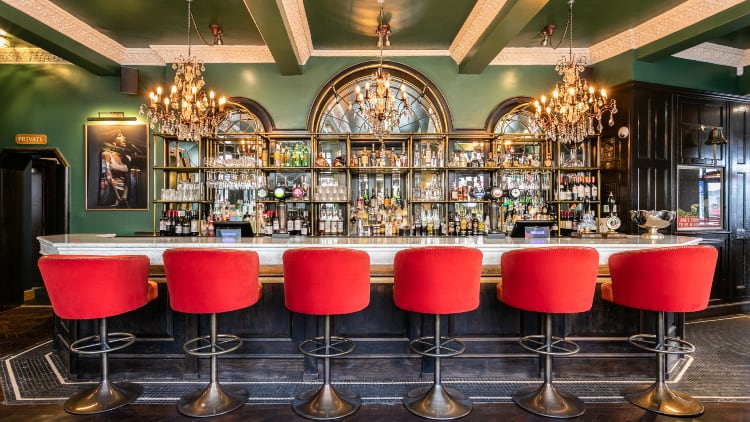
Food introduced
So they quickly added the pub operation to the mix and the Abbeville has since built up a strong reputation over the years, particularly for its menu. “Food didn’t scare us, we weren’t afraid of a kitchen so we were comfortable with food coming into our pubs,” he adds.
Both Reynolds and Peake had grown up in London – Peake in Clapham and Reynolds in Richmond – so taking on the Abbeville felt like a good move. “We wanted to have more than one site, we could trade through the tough times and it offered us the opportunity to trade all day. Not like a restaurant, people would be coming in for a range of occasions and multiple reasons.
“We think it was the right decision to make,” says Peake, with a degree of understatement.
While Reynolds had completed a hospitality degree, and his parents had been restaurateurs, none of them were hugely experienced at first.
“We had a little experience of the sector,” says Reynolds. “But certainly no management experience. It wasn’t like we were in our 30s and having come out of a bigger operation.”
They were effectively self-taught. Reynolds says his degree in hospitality didn’t really prepare him for the reality of the trade, and Peake says his father’s profession as an architect had helped him acquire an eye for design, but they had to figure it out themselves.
“This is a business that attracts those who want to do it for themselves,” says Peake. “It rewards people who are persistent.”
Reynolds says the aim was never about getting rich, “we weren’t thinking we’d make money out of it,” although Peake quickly points out that they were “very driven”.
“Driven to be a success, yes,” picks up Reynolds, “but it wasn’t about making vast amounts of money. We wanted it to be successful and we wanted to run our own business but we weren’t thinking about empire building.
“So it’s been one hell of a learning curve!” The business has grown quickly – from the Abbeville, the company quickly acquired a second site in 2005, which they named the Tommyfield. That acquisition was something of a threshold move, with the operation now running three sites, the three directors were forced to step away from the shop floor and leave the day-to-day operations to staff while they focused on more strategic matters.
Further expansion followed with the Stonhouse a year later, and two further operations, the Bollingbrooke and the Avalon in 2008. The same year saw them finally abandon the restaurant trade with the sale of their initial site, Cinnamon Cay, allowing them to focus entirely on pubs.
The two acquisitions also marked a step-change in the company says Peake. “We spent a large amount on those two sites, around £1.1m on the Avalon and £300,000 on the Bollingbrooke.”
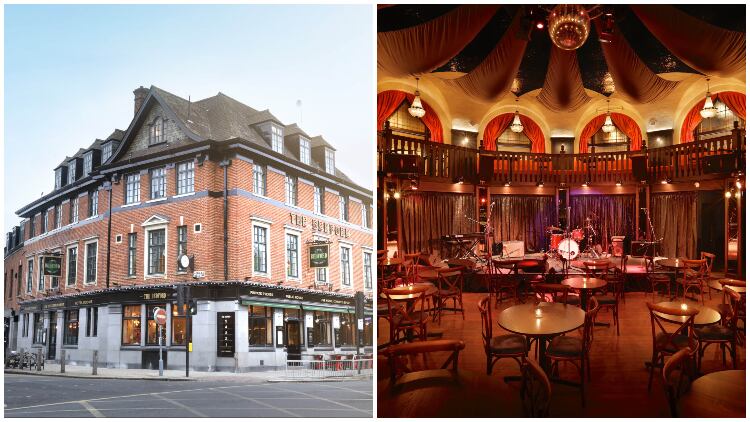
My favourite pub
Mark Reynolds: “I would say it’s the Ferryboat Inn, Helford, Cornwall. It’s very pretty. It does great local fresh fish and seafood. It’s got a great little terrace where you can sit and watch the world go by and your kids can play on the sand.”
Tom Peake: “It’s got to be the St Kew Inn, which is also in Cornwall. It’s a place I love and somewhere I’ve spent a lot of time. I realise a favourite pub isn’t all about the food and drink, though that’s got to be good – it’s all about people and place. That sense of affinity.”
More sites and a partnership
But the new sites also took them away from their original gastropub vision. “The Avalon was busy and got us into 1am licences, door staff and DJs for the first time,” Peake adds. “The size of the site was tough as well, it had a kitchen on the first floor and that caused us some challenges at first, but it also made us think about things differently.”
It also allowed them to be very selective about the sites they would take on, moving forward.
The next few years saw them take on two more sites, the Rosedale and the Latchmere in 2014, however, the company entered new territory following a deal in 2018 with Ei Group to open two further sites, the Bedford and the Princess Victoria under its managed expert model, creating a new operation called Six Cheers.
“We had already been interested in the Bedford and looked at it, but shied away because it was a tied site that needed a considerable amount of investment,” says Peake. “But we ended up having a chat with Ei and it was good timing.”
He explains, at the time, they were struggling to identify good opportunities: “We weren’t finding sites. We were keen to expand but there was very little out there.”
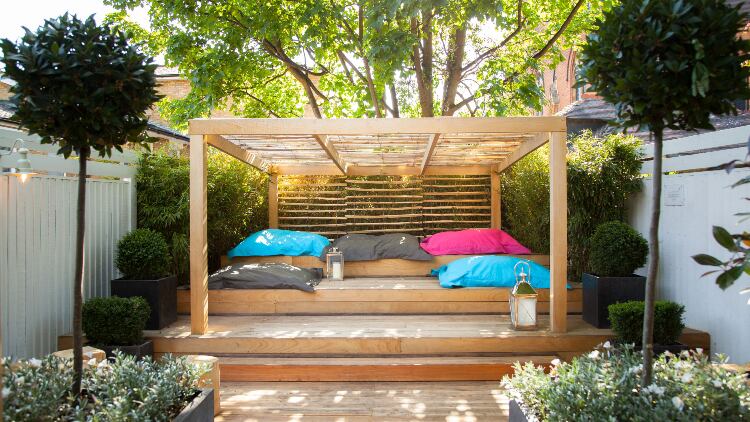
Being involved with Ei has been good for the business, the pair say, and they’ve embraced the opportunity to get the experience and support of the Ei managed investment division.
Reynolds adds: "They’ve been careful about who they’ve gone in with, but we’ve enjoyed the freedom they’ve given us.”
The renovation of the Bedford allowed the team to tap into Ei’s financial muscle with the project needing a whopping £3m investment but, importantly, they were allowed to pursue their vision. “We were given the freedom to do what we wanted,” says Reynolds.
All of the pubs are predominantly in a similar geographic location, the bulk in south London, with the only outlier being the Princess Victoria over in Shepherd’s Bush. Reynolds says he likes the idea of being able to get round all nine sites in a day, at a push, while Peake simply smiles.
“It would be nice to join the dots up between the Princess Victoria and the rest of the sites,” says Reynolds, suggesting operations in his old stomping ground of Richmond and perhaps sites in Barnes and Putney."
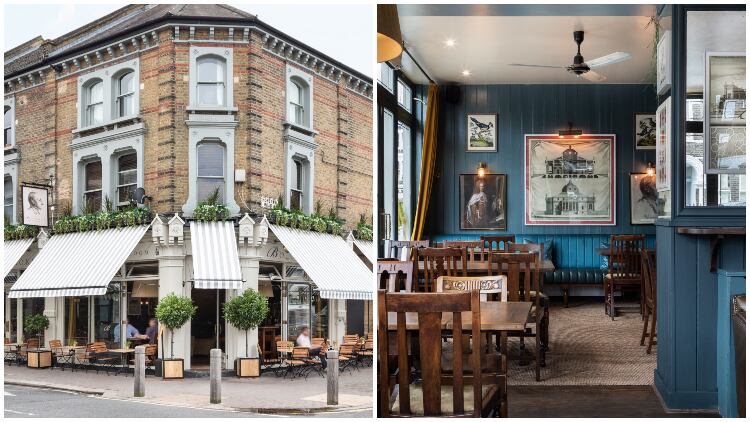
Fortunately, the Ei relationship does not tie the company’s hands when it comes to expansion outside that partnership model, says Reynolds. “There’s no reason we can’t do our own thing, but there’s a decent pipeline coming through Ei, so we’d be crazy not to take advantage of it.”
And expansion is firmly on the cards. “We’re looking at around one a year,” says Reynolds. “We could get up to 15 in the next five to 10 years.”
He says there are a few key stages in pub company growth – one to seven, then seven to 17, then it’s up to 70. Although the pair both don’t see themselves going much beyond the 17 mark.
“We’ve got a small team,” he says. At the moment it’s the three directors, an operations manager and an exec chef, there’s no head office with the directors either working out of the pubs or their homes. “So to go beyond 17 means we’ll have to take that to another level. At the moment, we’re not planning on going there.”
Caution remains key for this business. We’ve been very careful, Reynolds says, although he admits that has led to a few regrets over missed opportunities on the way. Some sites were turned down by the group, but then Three Cheers has seen competitors take on those venues and do great things with them.
“We’ve got to keep our eyes open and look out for stuff,” says Reynolds. “But we’ve got 250 staff that work for us and a lot of them have children. That creates a responsibility for us to be running a sensible business. A well-run, profitable business that people want to come to.”
And they don’t lack for challenges, staffing issues being one of the biggest. “Finding staff is a big one,” says Reynolds, particularly skilled chefs.
“Brexit, dare I say it, has definitely made an impact, even though it hasn’t happened yet, people aren’t coming over. So we’re spending more on recruitment. Once upon a time you’d put an ad on Gumtree and get lots of CVs, now we’re lucky to get a couple.
“We’re having to spend more advertising in more channels so it costs a lot more, but it’s also time consuming.”
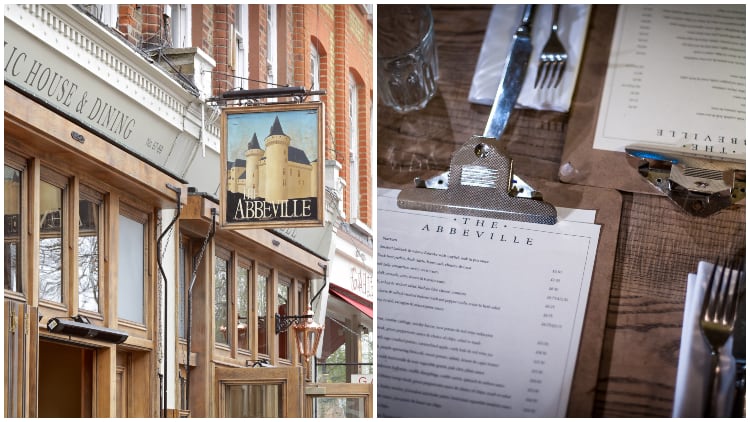
The shifting consumer trends are also something they’re watching and reacting to, says Peake. “Younger people not drinking is a major shift, and that scares us in the longer term. Those younger people are what puts money in the till.
“That’s why we’ve diversified, we’ve got comedy in venues, it’s about providing an experience.
“It’s not just about coming in for a pint, it’s about a wide range of reasons now.” They’re also dipping their toes into the delivery market, and recently signed up four sites to Deliveroo, to “see how it goes”.
And so, what does the future hold for a company set up by three friends, one that’s shown solid organic growth over the past couple of decades?
Peake says they’re looking for a period of consolidation: “The Bedford was a huge investment, both operationally and financially and we’re just over six months in, so in another six months it will feel more sensible.
“There’s no grand scheme,” he adds. “There’s just the three of us in Three Cheers, so we can shift and get stuck in quickly.”
And Reynolds speedily adds: “And if something does pop up, we’ll go for it, we wouldn’t stop ourselves.”
So while they may not be aiming for world domination, they’re quietly cornering the market in quality operations to the south of the capital.

